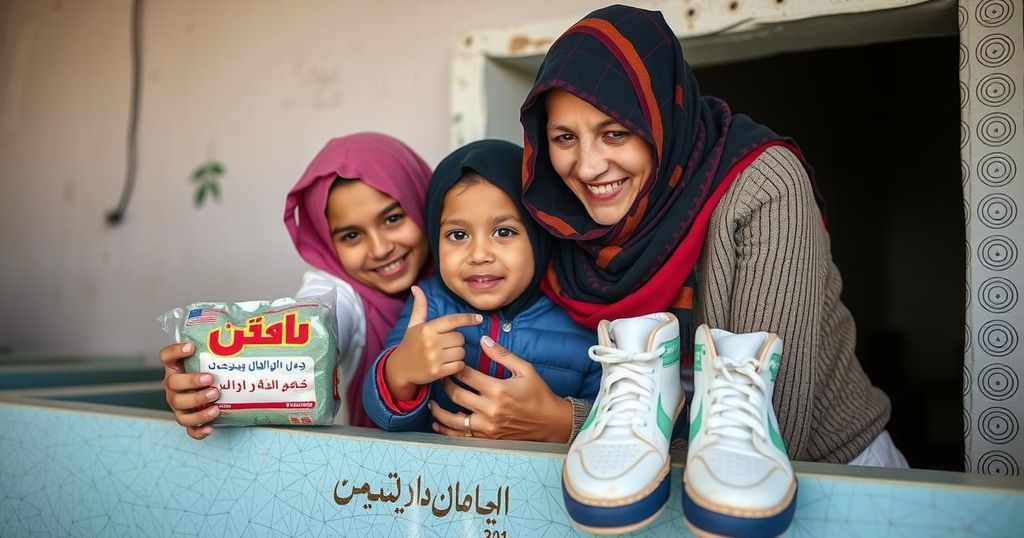WFP Affirms Commitment to Supporting Iran Amid Refugee Challenges

The World Food Program is committed to aiding Iran in its refugee support efforts amidst rising Afghan migration. With increasing pressures on Iran’s infrastructure and social services, the importance of international cooperation is highlighted, alongside the need for substantial improvements in funding and education infrastructure for refugees.
The World Food Program (WFP), represented by Maysaa Alghribawy, has reaffirmed its commitment to assist Iran, a significant host nation for refugees. Discussing pressing challenges, Alghribawy emphasized the need for improved cooperation with the Iranian authorities to enhance food security programs amidst increasing refugee inflow. In a meeting with Foreign Minister Abbas Araghchi, she highlighted the complexities of the humanitarian crisis in Western Asia, necessitating regional and international collaboration.
Recent reports indicate a substantial influx of Afghan nationals, with approximately 4,000 entering Iran daily. As the country accommodates nearly six million Afghans, documented and undocumented, these figures illustrate the urgency of addressing the associated socio-economic challenges. Iran’s immigration policies could be subject to revision if the international community does not equitably share the responsibility of supporting refugees, according to Nader Yar-Ahmadi of the National Organization for Migration.
Concerns regarding funding and resources for the UN High Commissioner for Refugees (UNHCR) have emerged, particularly as less than one percent of the actual costs of hosting refugees are covered. Yar-Ahmadi noted that only a minority of vulnerable refugees have been provided with necessary insurance. The challenge extends to educational infrastructure, with a pressing need for additional classrooms to accommodate foreign students, yet only a fraction of the required schools has been developed since 2021.
As political issues and sanctions may threaten humanitarian efforts, Iran stands ready to collaborate with the financial supporters of refugees. The emphasis remains on ensuring proper documentation and organization of refugees to improve their situations and facilitate their potential repatriation in the future.
Iran has long been a major host country for refugees, particularly from Afghanistan, owing to ongoing regional crises. The World Food Program has a vested interest in ensuring food security for these populations, necessitating collaborations with Iranian officials. The influx of Afghan refugees has escalated, raising concerns about the socio-economic pressure on Iran’s infrastructure. Underlining the humanitarian challenges, officials have called for a fair distribution of responsibilities among the international community to support such efforts effectively.
The World Food Program’s commitment to supporting Iran in its efforts to host refugees highlights the urgent need for international cooperation. With a significant influx of Afghan refugees, Iran faces mounting challenges in food security and social infrastructure. The potential revision of Iran’s immigration policies underscores the necessity for the global community to address these humanitarian responsibilities adequately. Additionally, the pressing demands for educational resources and infrastructure for foreign students remain critical issues that require prompt action.
Original Source: www.tehrantimes.com








